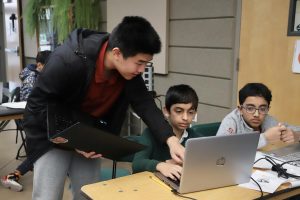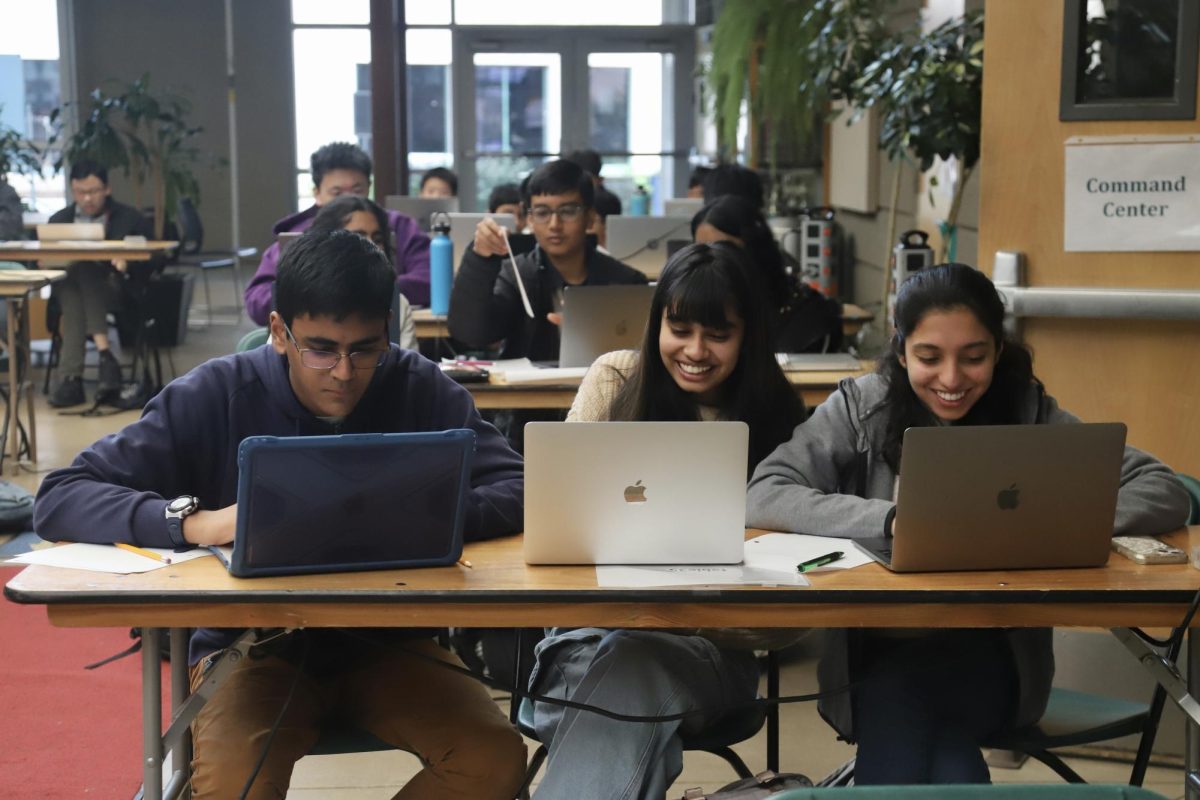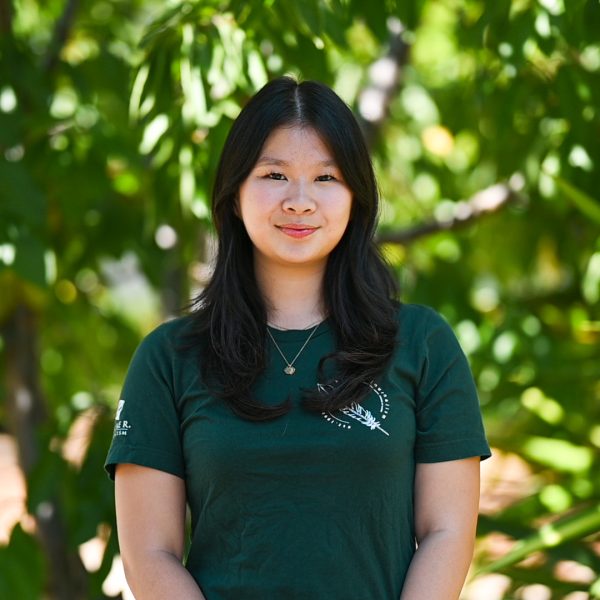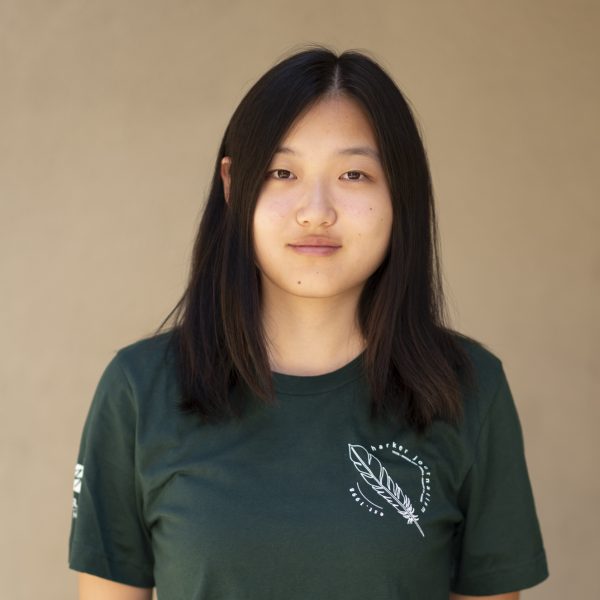Around 150 middle and high school students from the Bay Area participated in the annual Harker Programming Invitational (HPI), a team-based competition organized by Harker Programming Club (HPC) and held in Nichols Hall on Saturday.
Registration for the contest, themed “CS and Transportation,” began at 8 a.m. in the Nichols Atrium. Competitors moved with their teams of up to three students into assigned testing locations. The contest ran from 8:30 to 10:30 a.m and consisted of a set of 10 problems in the novice division and 12 problems in the advanced division.
HPI participant Yash Belani (9) attended the contest the past two years because of its high-stakes yet cooperative nature.
“I attend these contests because I want to become better at competitive programming,” Yash said. “Also, it’s fun to team up with friends and also meet other people who are interested in the topic as well. This year, with my teammates, we did talk about one problem for pretty much an hour, and did it as a team.”
Following the contest, participants moved to the Nichols Auditorium for a panel session from 10:45 to 11:30 a.m. In line with this year’s theme, keynote speaker Allen Yang spoke about his work at the intersection of computer science and transportation, including his experience leading the Berkeley ROAR team in the Indy Autonomous Challenge. Then, Berkeley undergraduate students Isaac Gonzalez and Rojan Kashani working on the NASA SUITS project presented their pitch to inspire the participants.
To conclude the event, an award ceremony that began at 12 p.m. announced the top teams for both the novice and advanced divisions. A total of 26 novice and 29 advanced teams competed. In both divisions, each member of the first-place team won $100, with additional prizes for other placing teams. From Harker, frosh Lucas Lum and his team took first place in the novice division.
HPC officers began organizing this year’s HPI in December. On the front end, organizing the contest involves contacting speakers, managing funds for prize money and other expenses as well as conducting outreach to local schools and organizations to draw participants.
After pitching ideas, the club’s problem-writing team completes a process of writing problem statements, coding solutions, generating test cases and peer-reviewing each other’s work. Problems are then transferred onto the online platform Codeforces on which participants submit and run their code.

HPC president Joe Li (12) partook in the process of writing the problems and appreciated the effort of the other writers.
“I really enjoyed talking to the problem writers about different problems and disputing points because there were a lot of really interesting ideas,” Joe said. “I also enjoyed talking to the participants about their solutions after the contest. I could see their excitement about solving the problems, and that was just really fulfilling for me as well.”
Upper school computer science teacher and HPC adviser Anu Datar noted the importance of hosting an annual competition for Bay Area students.
“I saw that the atmosphere in the atrium was especially electric, and everyone was really engrossed in trying to solve the problems,” Datar said. “The students really enjoy pushing themselves and taking on these kinds of challenges, and HPI provides a platform for a lot of students who are deeply passionate about computer science and problem solving.”


















![“[Building nerf blasters] became this outlet of creativity for me that hasn't been matched by anything else. The process [of] making a build complete to your desire is such a painstakingly difficult process, but I've had to learn from [the skills needed from] soldering to proper painting. There's so many different options for everything, if you think about it, it exists. The best part is [that] if it doesn't exist, you can build it yourself," Ishaan Parate said.](https://harkeraquila.com/wp-content/uploads/2022/08/DSC_8149-900x604.jpg)




![“When I came into high school, I was ready to be a follower. But DECA was a game changer for me. It helped me overcome my fear of public speaking, and it's played such a major role in who I've become today. To be able to successfully lead a chapter of 150 students, an officer team and be one of the upperclassmen I once really admired is something I'm [really] proud of,” Anvitha Tummala ('21) said.](https://harkeraquila.com/wp-content/uploads/2021/07/Screen-Shot-2021-07-25-at-9.50.05-AM-900x594.png)







![“I think getting up in the morning and having a sense of purpose [is exciting]. I think without a certain amount of drive, life is kind of obsolete and mundane, and I think having that every single day is what makes each day unique and kind of makes life exciting,” Neymika Jain (12) said.](https://harkeraquila.com/wp-content/uploads/2017/06/Screen-Shot-2017-06-03-at-4.54.16-PM.png)








![“My slogan is ‘slow feet, don’t eat, and I’m hungry.’ You need to run fast to get where you are–you aren't going to get those championships if you aren't fast,” Angel Cervantes (12) said. “I want to do well in school on my tests and in track and win championships for my team. I live by that, [and] I can do that anywhere: in the classroom or on the field.”](https://harkeraquila.com/wp-content/uploads/2018/06/DSC5146-900x601.jpg)
![“[Volleyball has] taught me how to fall correctly, and another thing it taught is that you don’t have to be the best at something to be good at it. If you just hit the ball in a smart way, then it still scores points and you’re good at it. You could be a background player and still make a much bigger impact on the team than you would think,” Anya Gert (’20) said.](https://harkeraquila.com/wp-content/uploads/2020/06/AnnaGert_JinTuan_HoHPhotoEdited-600x900.jpeg)

![“I'm not nearly there yet, but [my confidence has] definitely been getting better since I was pretty shy and timid coming into Harker my freshman year. I know that there's a lot of people that are really confident in what they do, and I really admire them. Everyone's so driven and that has really pushed me to kind of try to find my own place in high school and be more confident,” Alyssa Huang (’20) said.](https://harkeraquila.com/wp-content/uploads/2020/06/AlyssaHuang_EmilyChen_HoHPhoto-900x749.jpeg)





